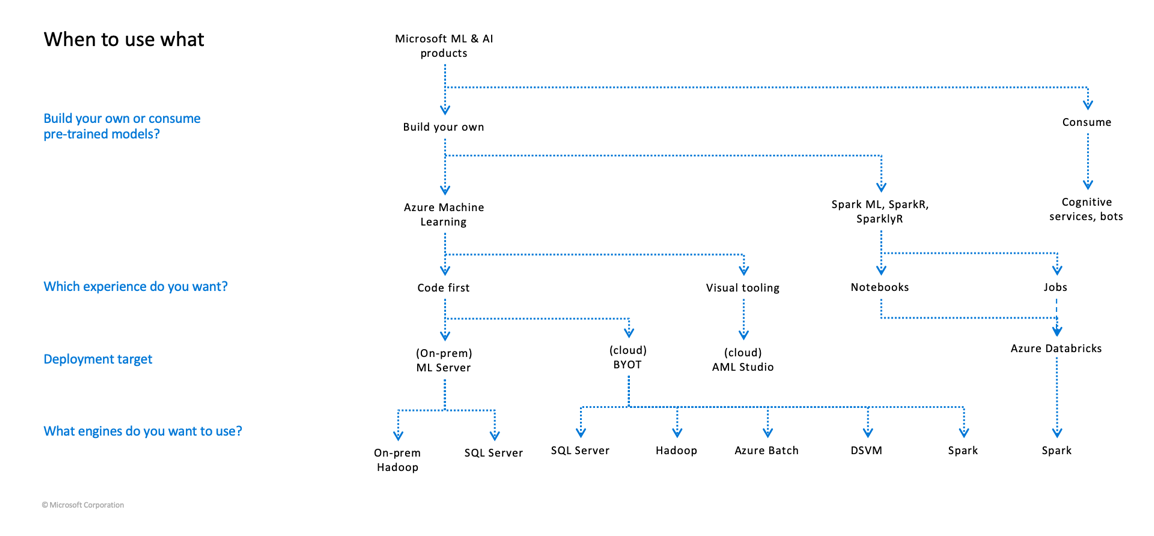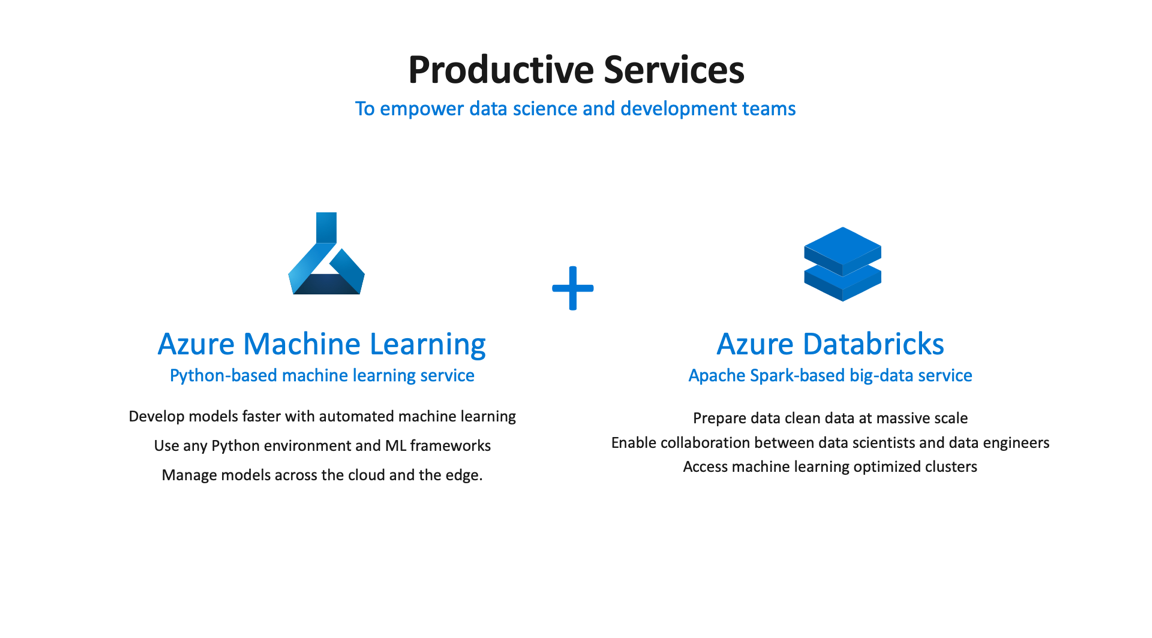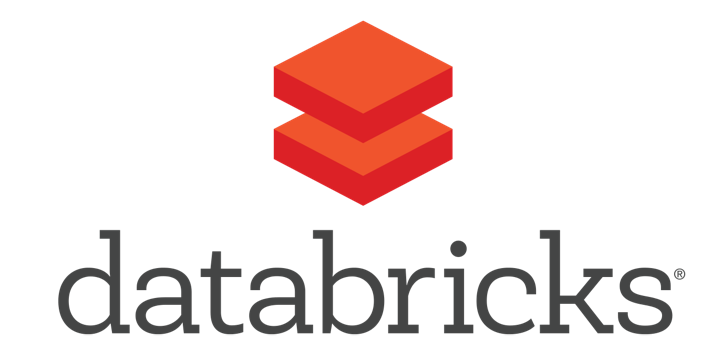What are the benefits of Azure machine learning?
Machine Learning and AI Portfolio

What are the capabilities of Azure machine learning?

Azure Machine Learning service integrates with any Python environment, including Visual Studio Code, Jupyter notebooks, and PyCharm
Azure Databricks is an Apache Spark-based big-data service with Azure Machine Learning integration. The two work together well, providing interactive notebooks that enable collaboration between data scientists and data engineers.

Azure Databricks simplifies model development:
- Easily collaborate in interactive workspaces
- Automate job execution and model version control
Databricks also helps you scale compute resources to meet your advanced analytics needs:
- Easily scale up on VMs or scale out on clusters
- Autoscale on serverless infrastructure, paying only for what you use in the cloud
- Leverage commodity hardware to reduce TCO
Azure Machine Learning Services enables you to quickly determine the right model for your data:
- Determine which algorithm is best for your data
- Tune hyperparameters to optimize your ML models
- Rapidly prototype in agile environments
An R package that provides a light-weight frontend to use Apache Spark from R
- Provides a distributed DataFrame implementation that supports operations like selection, filtering, and aggregation—similar to R data frames, dplyr
- Supports distributed machine learning using Spark MLlib
- R programs can connect to a Spark cluster from RStudio, R shell, Rscript, or other R IDEs
Microsoft is the only company that offers the ability to deploy and manage models, whether in the cloud, on-premises, or even the Edge. This is extremely valuable in disconnected scenarios, where predictions have to be made on the Edge, without connectivity to the cloud. With IoT deployments becoming more widespread, Technology Services and Microsoft are well-positioned to help you innovate with AI wherever you need.
AZURE IN ACTION
Accuweather predicts weather impact using cloud-based machine learning.

